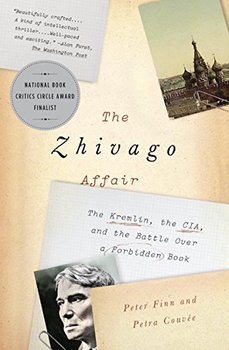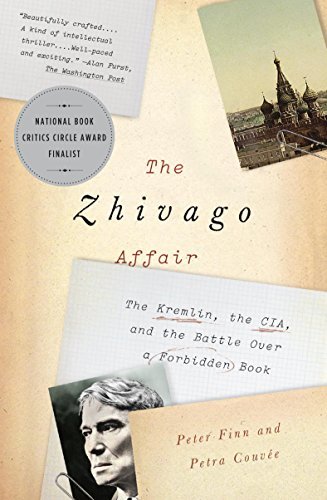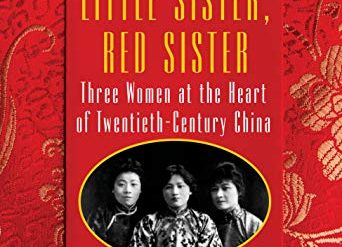
Historians squabble about how change has happened over the five thousand years of recorded human events. Is it the influence, whether malign or constructive, of those individuals called Great Men? Is it the material circumstances of society at a given moment in history, as a certain breed of Marxist might argue? Or is it ideas that ultimately explain how change has come about? That debate continues raging today, at a time when ideas are in open conflict on both sides of the Atlantic. Yet that’s nothing new. And never was the clash of ideas more intense than during the early years of the Cold War. Which is the topic at the root of The Zhivago Affair by Peter Finn and Petra Couvée, a fascinating inquiry into the role that ideas may have played in the collapse of the Soviet Union.
Estimated reading time: 4 minutes
A great writer, a Nobel Prize, and a covert CIA operation
The story at the root of The Zhivago Affair is simple. Boris Pasternak, Russia’s greatest living poet, had devoted the greater part of ten years to writing a novel he considered his masterwork. However, because Doctor Zhivago cast light on the revolutionary history of the USSR in a way that ran counter to the accepted orthodoxy of the Communist Party, nobody in Russia would publish it. In hopes of stirring discontent among the Russian people, the CIA conspired to publish the book in Russian in the West and smuggle copies into the Soviet Union. And when in fact they managed to do just that, the Soviet leadership overreacted, treating the book as Western propaganda. They even forced him to reject the Nobel Prize for Literature he was awarded, in part on the basis of the novel.
The Zhivago Affair: The Kremlin, the CIA, and the Battle Over a Forbidden Book by Peter Finn and Petra Couvée (2014) 385 pages ★★★★★
Doctor Zhivago helped speed the collapse of the Soviet Union
All that is historical fact, as declassified CIA files revealed in 2014. But the bare bones of the story are far less interesting than the details brought to light in The Zhivago Affair:
- Pasternak’s private life was chaotic. During the decade (1945-55) during which he wrote Doctor Zhivago, he was supporting the households of both his second wife and children and that of his mistress.
- The book reveals the extraordinary lengths to which the Soviet government went to enforce Communist orthodoxy in the arts, a tale that some might find jaw-dropping.
- It was Italian Communists who secured the manuscript from Pasternak himself and published the first edition anywhere. Eventually, they became involved in legal disputes of Byzantine complexity surrounding the novel.
- The Zhivago Affair was but one aspect of a massive, well-funded CIA program to flood the Soviet Union and the Socialist countries of Eastern Europe with millions of books that reflected poorly on their governments. And it had the support of officials at the highest levels of the American government.
Finn and Couvée spin together these disparate threads of the Zhivago story with great skill. In the course of doing so, they imply (although they never baldly state) that the ideas at the core of Pasternak’s novel helped lay the foundation for the collapse of the Soviet Union four decades later. This is a book well worth reading for anyone interested in the history of the Cold War or that of the CIA and anyone with a hankering for insight into Russian literature.
For related reading
I’ve also reviewed an excellent novel based on the same history: The Secrets We Kept by Lara Prescott (Doctor Zhivago and the women in the CIA typing pool).
You might also be interested in:
- Good books about Vladimir Putin, modern Russia and the Russian oligarchy
- Good nonfiction books about espionage
- The 10 top espionage novels
And you can always find my most popular reviews, and the most recent ones, on the Home Page.



























